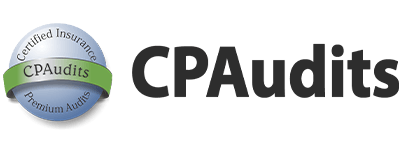Can you tell me a little about yourself?
I’m Wayne Vidzicki. I’m the Director of Collections and Premium Audit at Berkshire Hathaway GUARD Insurance Companies. I’ve been there 15 years – started in collections and did that for about a year and a half. During that year and a half, I learned very quickly that in order to be effective in collecting on workers compensation audits, you have to know premium audits. So, I taught myself premium audit and eventually was transferred to our premium audit department, where I worked for about 8 years until I worked up to being the manager of that department.
When I became manager of that department, our company had elected to create a dedicated collections department. We did collections before, but it wasn’t dedicated in one unit. Then, I was asked to move from premium audit manager to manager of collections, and I did in 2013. I did that for about 2 years, and then I was asked to manage both premium audits and collections, which is what I do now.
How has being both premium audit and collection manager helped when trying to resolve noncompliant audits?
Our company went through that financial crisis in 2008 and 2010. In terms of premium audit, often times when we were auditing policies we found that you’re not really billing any additional premium. So, when the estimated audits were going into collections at that time, we found that we were just chasing these people and not getting any money back. Eventually, we just stopped chasing them and did nothing with them.
When I finally took over collections in 2013 I noticed we weren’t really doing anything with them. I was coming from premium audit where I’d realized over the past several years we were actually billing additional premiums on audits so it only made sense that all of these estimated audits were worth something.
We recognized areas where people would complete them. We identified all those triggers and we said, “Ok after all these triggers are set off, we should start pursuing these.” The most economical way to pursue them was through collection agencies because the collection agencies just get paid based on a fee of what they collect. If they don’t collect anything, they don’t get anything.
So, I didn’t dedicate a lot of resources to it. We farmed them out with the expectation that the billed premium on those would be similar to what our billed premium would be on our regular audits that people were doing. We found that in fact, it was more.
Has GUARD always pursued noncompliant audits?
Well, like I said, we did for a long time, then we had that period where the market wasn’t doing so well and we weren’t billing additional premiums. We stopped the process during that time until I came back and decided it just made sense to go back after them, and we’ve been doing it ever since.
What were some of your concerns once you started pursuing them again?
First of all, I had to make sure that we were billing. We didn’t want to throw resources at something and have it work to our detriment. We had to make sure it was a lucrative thing to start pursuing them again.
Can you tell me about your internal process and internal collections?
One of the things we’ve done as a company is we try to recognize customer behavior and what triggers are going to make people pay.
My guys review everything the very first day. After that initial screening, they’ll know which ones they need to start calling. They’ll be able to determine the best way to approach their workflow. By doing that, all the resources are being dedicated in the right place at the right time.
You don’t want to get 50 policies in collections and call on all 50 when half of them can resolve themselves eventually without any real pursuit. My folks have gotten pretty good at that, but we’re always learning. Now it’s getting to the point where they can start looking at these large dollar amounts and can figure out where there’s going to be people disputing them.
One of the things I always tell my collectors is that a lot of people think that collections is just about collecting money – it’s not. Your job is to resolve the debt.
One of the things I always tell my collectors is that a lot of people think that collections is just about collecting money – it’s not. Your job is to resolve debt.
A large part of that is collecting money, but people make mistakes and sometimes there are errors. The idea is that you’re always looking to resolve the issue. Collect on disputed premium and manage your workflow appropriately to maximize the amount of work that your staff can do.
The second part of it is about establishing good business partners with the collection vendors. You want to make sure that you’re getting them the work soon enough, that you’re getting them all the information that they need on a particular file so that they’re not in the dark when they call these people, and you want to create points of contact so that the information can flow pretty quickly. You always want to resolve debt issues as quickly as possible. The longer it sits there, the lower the collectability gets.
For those that don’t respond, what is the next step?
If we’ve gotten to a point where we’ve sent all the requests and “nasty-grams” and canceled their policies and we still haven’t heard anything, that’s when we turn to our collection agencies to go after them. Often times when you get the third party involved, that’ll wake up the insurers. We’ll also look at the individual case and determine the degree of pursuit. We can always look at the claims history on the file and number of other things to try to determine where you’re going to be at. We make a consistent effort throughout to try to collect on that file. Often times if that agency doesn’t work out, we’ll second place it with another agency and come at them another way.
The idea is, you have to stay after them. A lot of times, you have to make sure you’re getting the appropriate contacts, getting agents involved, and getting the right contact info of the insured. Sometimes that’s just the issue.
It’s important to make sure they understand the purpose of the audit. It isn’t always that we’re going to bill you money. We might owe you money. We’ll be out chasing somebody for months, only to give them money back. The idea is, you want to verify what your exposure is and collect the appropriate amount of money based on the exposure.
What are some of your expectations from your collection vendors?
First and foremost, they are an extension of you. You want to make sure the company is acting in a professional manner and that they’re treating your insureds with the correct degree of respect.
Another big thing for me is the relationship part. All of the service representatives for the collection agencies we use need to have good communication with the people that we have on the floor, and with me. And the management team has to have good communication with me. We’ve got to keep each other informed of what we’re doing.
It’s got to be a constant process. I expect communication to be very, very good. I expect that there’s a high degree of professionalism and I should see that through the work.
Finally, I expect there to be really good results. When I look at the collection results at the end of the day, I have benchmarks that I set. Every year, we try to beat those. We try to get a little bit better each year.
You have to feel like you’re on the same team. I really don’t take any of the relationships I have with collection vendors for granted. I understand they’re in the business to try and make money, just like me. We need to work together and be able to lend support to each other to accomplish that common goal.
In terms of premium recovered, how many pay the full estimated amount and why would they pay the full amount?
I would say at least 75% pay in full.
If a policyholder wants to comply after being placed in collections, is your agency skilled enough to make the policyholder understand what they need to supply for an audit?
Yes, we require that our collection agencies do that. You can’t be successful collecting on worker’s comp premiums if you don’t understand worker’s comp and if you don’t understand audits.
If someone is calling you up, trying to get money from you and you don’t know why you’re not going to pay them. That’s just the reality in life. So, you have to know audits in order to be able to explain why somebody owes money.
I look for collection agencies who specialize in insurance. I’ve talked to a number of collection agencies who try to get work from us and who don’t have any experience in collecting on insurance or on worker’s comp insurance premiums. I won’t hire them because even though they may collect some money, they won’t be as successful as agencies that are well-versed in insurance and who can explain something specific to an insured.
It all goes back to this: nobody’s going to pay you if you can’t explain it well.
Considering all factors, is it worth pursuing the noncompliant audits?
Absolutely. It has proven very, very successful for our company. There was a huge impact within three to four months of pursuing them.
Some people look at audits as an expense. I don’t see it like that. You’re writing policies that are based on an estimated exposure. The premium at the beginning of the policy term 99% of the time is not going to be the same premium at the end of the policy term. It’s going to be less, or it’s going to be more. I think audits serve as a good check to make sure you’re getting the appropriate premiums that you’re supposed to get.
How has your program impacted GUARD?
Our collection rate basically doubled. We found was that our collection percentage also went up initially because people realized we were going to go after them until the end.
Do you have any advice for companies when they’re considering pursuing estimated audits?
When we first started pursuing them, I dedicated very little in terms of internal resources. I used primarily external resources to pursue them. Those external resources would only get paid when they got me the audit and collected the amount. You’ve got to try to streamline the auditing process as much as you can.
If I were another insurance company, I’d say go after them all.





